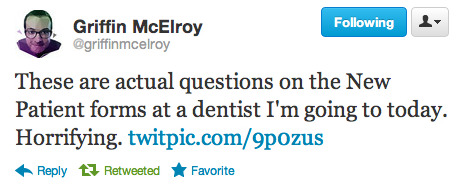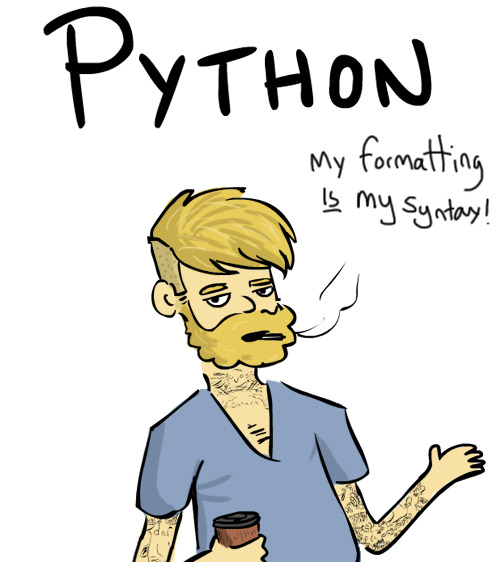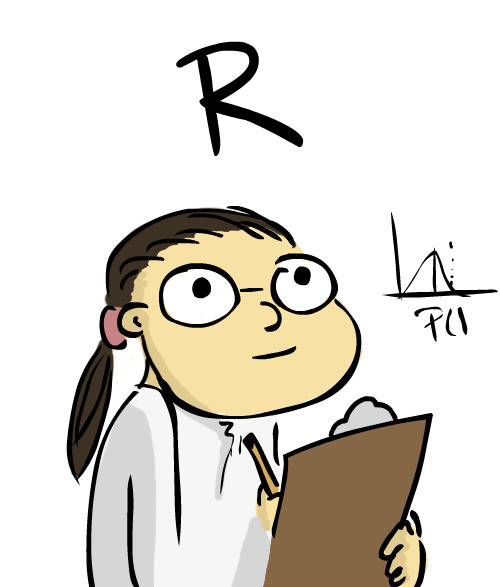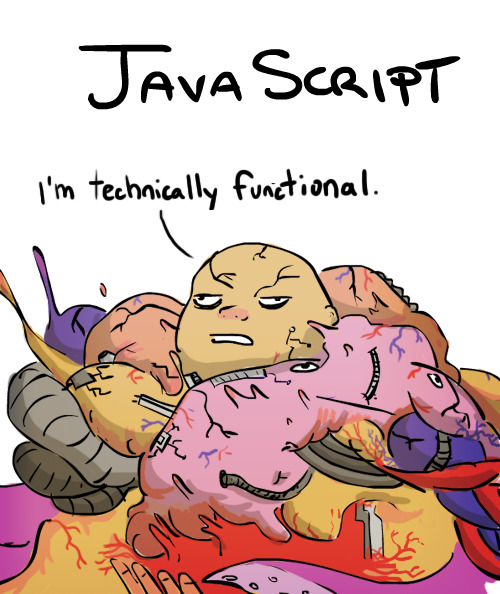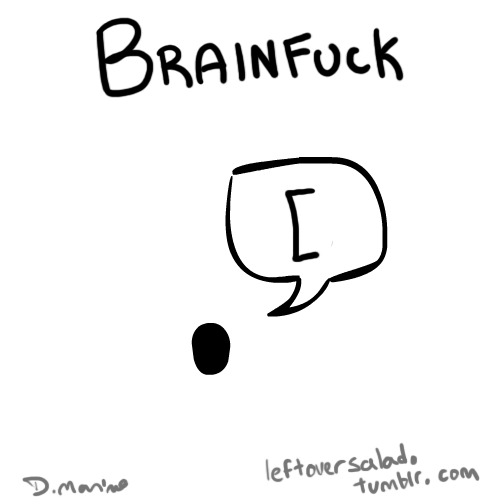Where better to keep things that might inspire me? I'm mostly going to be reblogging artwork with this, and occasionally posting my own articles and music.
Don't wanna be here? Send us removal request.
Text
Beliefs, mindsets, and meaning, in psychedelic integration
[This is a response to a Facebook post that explores placing psychedelic beliefs or “knowings” along a spectrum from testable to untestable. The author gives aliens, reincarnation, crystals, and collective consciousness as examples of hypothetically testable beliefs, and koans/poetry as untestable (like “after enlightenment, chop wood, carry water”.) This is all presented in the context of helping people work with psychedelic experiences.
I’ll be asking if I can quote it in more detail, and for now here’s my reply.]
These questions are quite near the core of the things I care about, in terms of gathering useful tools for helping folks work through psychedelic experiences. To start, I have some resources here, including a detailed presentation on trip-sitting and a reading list.
On the bigger questions of meaning and mindset, I find it important to consider the context that each individual is coming from. If someone has a background of belief in things that don’t match up with observable reality, and they’re also experiencing a reasonably high level of wellbeing and function in their day-to-day life – I’m quite hesitant to mess with that. There’s a significant risk of tipping people into nihilistic despair, if a fragile belief system breaks without any other scaffolding in place. There’s something to be said for co-creative, intentional belief restructuring, and it’s not something to take on casually.
If someone doesn’t have the desire, support, or capacity to work on installing more robust and flexible frameworks for collaborative meaning-making… I’d recommend encouraging them to focus more on things at the personal level (self-compassion, self-trust, etc.) rather than the epistemological level, for the time being. (Of course, you can’t control whether something destabilizing will come up in a psychedelic experience, much less in reality in general!) I do think that mindset-level work is deeply important in the long run, both for individuals and for the survival and thrival of humanity as a whole.
I take a practical approach to working with psychedelic experiences as metaphors, which I sometimes call “pragmatic mysticism.” As Box and Draper said, “all models are wrong, but some are useful.” When applied to psychedelic states:
“The measure of a metaphor lies exclusively in its power to model a situation in such a way as to most frequently provoke the most appropriate response to stimulus. Period. If your tobacco addiction presents to you as a demon, and you choose to deal with it that way, awesome. For some people that’s a good lens to use. For others it might be better to stick with the chemical feedback loop model.”
– Teafaerie, “To Believe or Not to Believe“
If someone has a psychedelic experience in which a Pleiadian angel whispers to them, “You can forgive yourself even when there’s nothing to forgive, and move forward with a sense of compassionate agency” or if their chakras get recombobulated in such a way that they feel like a fundamental belief in their own unworthiness has been dissolved – I count that as a win for the day.
Now, if the aliens are saying something that’s rather more worrying, or if someone’s belief system has already broken on contact with reality – then, yeah, I’d say that’s an opportunity for some mindset work.
David Chapman is the most coherent thinker I know, on these topics of mindset and meaning. See, for example “Rumcakes and rainbows” and “A bridge to meta-rationality vs. civilizational collapse”.
One bonus challenge for psychedelic preparation and integration is that these substances can be “non-specific amplifiers” of whatever you bring into the experience. Psychedelics can crank the pattern-matching dial up to 11, and some (like ayahuasca/DMT) seem to be especially prone to amplifying whatever mental system puts faces on things.
Say that someone goes into a trip with a belief system that’s not particularly coherent. If we’re using nautical metaphors, it might be more like a haphazard collection of boards and bolts than a watertight boat.
Now, sometimes psychedelic experiences can be disorienting enough to capsize that raft, dashing it against some kind of paradoxical rocks. Other times, psychedelics can take the raft, strap on anti-grav rocket engines made of pure dream logic, and infuse the whole thing with a deep glowing viscerally-felt sense of Significance.
That’s when you can get the grandiose delusions of being a messiah/prophet/channel, like people who suddenly realize their mission in life is to preach the gospel of ancient Egyptian quantum transdimensional star-crystal encabulation.
What usually happens, gradually or abruptly, is that the glowing aura of Significance will fade from the raft, and the dream logic engines will sputter and give out. Or, the turbo-charged raft hits an iceberg of reality (which, even if you don’t believe in it, doesn’t go away). Then you’re back in the sea of meaninglessness, clinging onto a few waterlogged boards.
Now, what I’d recommend aiming for, is using the transcendent, mystical, ecstatic experiences that psychedelics can catalyze, along with reasonable baseline-state reflection, to help build better self-sustaining meaning-making systems.
What does that look like? Partly, it involves using a kind of Neurath’s boat maneuver to replace rotten boards with solid ones, while you’re still at sea. It also involves noticing that some boat structures are better at catching meaning (like sails), and others are better at rational seaworthiness (like hulls), and building on systems that incorporate both. (Or, consider abandoning the ship metaphor and navigating fluidly across contexts like a gannet!)
Also, going back to the spectrum of testable to untestable in psychedelic knowingness… I’m not sure that it’s the most useful categorization, for me. Many of the examples the post mentions as hypothetically testable are likely to be embedded in / emergent from ways of understanding the world that don’t include a deep commitment to “trying not to fool yourself." I suspect that, if pressed, most of these belief patterns will defend themselves from scrutiny like the increasingly invisible, intangible dragon in Carl Sagan’s garage.
And on a different angle, there are some unfalsifiable beliefs that are deeply functional for interacting with the world. Humans seem to need some kind of story, some narrative threads to weave themselves into the tapestry of being. Love, hope, purpose, meaning – these seem not to come baked in to the universe, resist being dissected out of it, and yet seem to exist as needs / narratives with causal power.
I have more to say about this, in relation to my experiences around ayahuasca (and their aftermath) – and that’s a story for another post.
(To give a very brief overview: I was hired to be a facilitator and research director at an ayahuasca center in Peru, and then fired for being too rational. I came to realize that I’d absorbed some thought patterns that I found alarmingly non-rational, and I dumped a bunch of core beliefs in a panic, to stave off this memetic "infection.” Turned out that I’d thrown out the baby with the bathwater, and had also purged beliefs like “it’s possible to experience meaning and purpose in the world.” I was in a quite depressed nihilistic state for a few months, and have been gradually putting together a more seaworthy vessel from the pieces.)
5 notes
·
View notes
Video
tumblr
this encounter seems very intimate and magical, like a moment in a dream
947K notes
·
View notes
Text
I watched Pulp Fiction with K last night. and I’ve been reading about it all afternoon.
The big debate online is about what’s in the briefcase, and the most popular answer is “Marsellus Wallace’s soul”. The argument in favor is:
1. It’s described as “so beautiful” and captivates anyone who looks at it 2. It shines with an inner light 3. When Jules and Vincent are trying to get it, all the shots aimed at them miss, implying they’re miraculously immune to bullets, implying that they’re on some kind of divine quest. 4. Marsellus Wallace really, really wants to get it
But there are some flaws in the argument. Why would Brett - this random nerdy-looking Californian guy - have Marsellus’ soul? And how do you keep a soul in a briefcase?
A stronger theory would have to involve something else beautiful and glowing with inner light, which also impels people to seek it and even kill for it, which also provides supernatural protection to those who rightfully seek it, but which could fit in a briefcase and which a nerdy Californian might be uniquely skilled at knowing where to find.
My point is, I think Marsellus Wallace has at least one Silmaril.
1K notes
·
View notes
Text
youtube
Okay, the mathematicians have set forth a challenge, we biology people need to do a W. D. Hamilton one.
79 notes
·
View notes
Conversation
Obi Wan: hey there shit lord
Obi Wan: I meant sith lord. Stupid autocorrect
Darth Vader: this is a verbal conversation
21K notes
·
View notes
Text
“My humanity is a constant self-overcoming, but I need solitude: a recovery, a return to myself, a breath of a free, light, playful air. The whole of my Zarathustra is a dithyramb to solitude, or, if you have understood me, to purity.”
—F. Nietzsche, Ecce Homo, “Why I Am So Wise” §8 (edited excerpt).
496 notes
·
View notes
Text
Squat: 90kg 5x3 Bench: 155lb 5x2, 10 DB Row: 60lb 10x5 oh my god i am so weak when did this happen
0 notes
Text
I read an article recently about software development as a career/industry being too exclusive and being too difficult to learn about and not being easy enough to get started with
Criticisms included:
Of all the freely available material online to get started with software development, only a small part of it is by women/POC/etc
The software development bootcamps are too expensive. Of the ones that only take a portion of pay once/if you get a job, they take too much time away from working. Of the ones that offer scholarships, the stipend often doesn’t fully cover health insurance or childcare, and none of them accept Pell/public loans/etc
One of the ways to become a software developer is college, which is too expensive for many people and can be a hostile environment for women/POC/etc
and i’m just like
Yes. Valid points. Correcting them would be useful.
But let’s be real, this feels like digging for excuses. I can’t think of another industry where you can literally teach yourself all of the skills required without paying a dime and land a job paying well over median salary. I can’t think of another industry where 3 month bootcamp can land you a decent job, AND has a money-back guarantee. How many careers out there legitimately don’t require a 2 year trade school or 4 year degree that pay over the median salary while being extremely safe/comfy (not to mention one of the few careers where remote/at-home work is very common)? I also can’t think of another industry that has such a strong contingent of people willing to work to improve it and make things better.
Like all said CS totally has problems and issues to work on. But it seems to get way more flak than is proportional to how awesome it is relative to everyone else. Almost all of the above problems are systemic problems in the US’s broken as fuck healthcare/education/childcare situation and leveling criticism at CS for not single handedly fixing that is a little absurd.
(like oh my god i can be openly polyamorous and bisexual and have a cat/space/laser LinkedIn profile picture and people still want to hire me? WHAT)
0 notes
Photo

from Vox. numbers adjusted for purchasing power. We still have a billion people to go, but things like this make me feel warm inside. We’re winning.
207 notes
·
View notes
Text
The Best Debugging Story I've Ever Heard
Back in the early 80’s, my dad worked at Storage Technology, a now-defunct corporate entity that made tape drives and pneumatic systems to drive these tapes at high speeds – for that period of time.
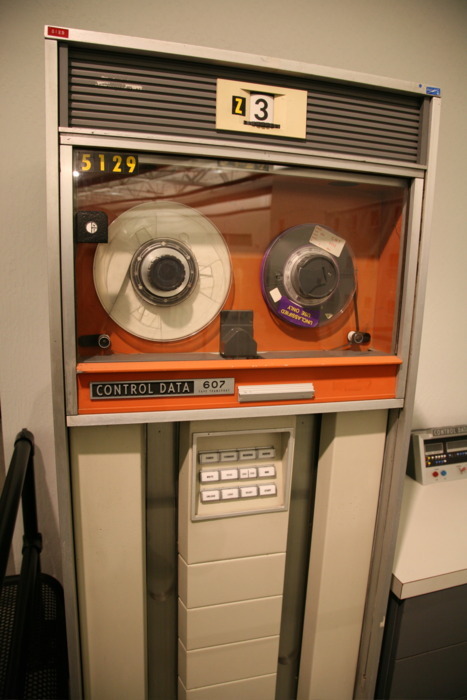
(Used under license from Laughing Squid. The original is available here.)
They had hacked engineered the tape drives such that you could have one central drive – the ‘A’ drive – connected to seven other ‘B’ drives, and a small operating system on some RAM attached to the A drive would delegate the reading and writing of data across all of the B drives.
Every time you started up the A drive, you had to insert a floppy disc into a peripheral drive connected to the A drive so that the operating system could be loaded onto the A drive’s RAM. The operating system was appallingly primitive - it derived its processing power from an 8-bit micro controller.
The target audience for this sort of thing were corporations with very large data sets - banks, magazines, et cetera - that needed to print huge amounts of address labels or bank statements.
One customer had a problem. In the middle of a print run, one particular A drive would stop working, causing the entire print run to stop. To restore the drive the attendants had to reboot the entire drive - and if this happened in the middle of a six-hour print job, there’d be a ton of expensive computer time lost and the whole operation would fall behind schedule.
So Storage Technologies sent out technicians. The technicians, despite their best efforts, could not reproduce the bug in test settings: this bug seemed only to happen in the middle of large print jobs. So, on the off chance that this was a hardware issue, they replaced everything they could - the RAM, the microcontroller, the disk drive, every conceivable part of the tape drive - but the problem kept happening.
So the technicians phoned up headquarters and called in The Expert.
The Expert got a chair and a cup of coffee and sat in the computer room – these were the days when they had rooms specifically dedicated to computers, after all – and watched it as the attendants queued up a large print job. He waited until it crashed - which it did. Everybody looked to The Expert – and he didn’t have a clue what was causing it. So he ordered that the job be queued up again, and all the attendants and technicians went back to work.
The Expert sat down in his chair again, waiting for it to crash. It took something like six hours of waiting, but it crashed again. He still had no idea what was causing it, other than the fact that it happened when the room was crowded. He ordered that the job be restarted, and he sat down again and waited.
By the third crash, he had noticed something. The crash occurred when the attendants were changing the tapes on an unrelated drive. And furthermore, he realized that the crash occurred as soon as one of the attendants walked across a certain tile on the floor.
This type of floor was made of aluminum tiles propped up by posts about 6 to 8 inches tall. The massive amount of wires that these computers needed were threaded under the floor tiles so that an unwary attendant wouldn’t trip over a crucial cable. The tiles were put together very tightly so that no debris would fall into the space where the wiring went.

The Expert figured out that one of the aluminum tiles was warped. When an attendant stood on the corner of the warped tile, the edges of the tiles rubbed together. As the plastic connecting the tiles rubbed together, they produced microsparks, which in turn caused RF interference.
Nowadays, RAM is much more thoroughly shielded from RF interference. But back then, this was not the case. The Expert figured out that the RF interference was corrupting the RAM and, in turn, the operating system.
The Expert called the maintenance office, got a new tile, installed it himself, and the problem went away.
1K notes
·
View notes
Quote
You are personally responsible for becoming more ethical than the society you grew up in.
Eliezer Yudkowsky (via rampias)
Being a “product of their times” is no excuse. Never let someone off the hook for bigotry.
(via callingoutbigotry)
365K notes
·
View notes
Text
‘laziness’
I’m a lazy person.
What I mean by this is that I do not do my homework; I miss deadlines at work because I’d rather play games than do the work; I have projects I’m excited about but instead of starting them I scroll aimlessly through tumblr. I have occasionally failed to turn in important assignments because I didn’t do them because I didn’t feel like it.
Out of sheer curiosity I recently started tracking the amount of time I spend productively, and it was 17%. (This is during the school year).
My whole life I’ve thought of this like a personality trait. I can’t do things unless they’re interesting because I’m lazy. I tend to get in trouble with jobs and at school because I’m lazy. I hated the personality trait, I wanted to change it, I aspired rather desperately to be a hard-working person and caused myself a great deal of pain trying to imitate one, but I was still thinking of it as some sort of fundamental tendency, some sort of fact about me.
Keep reading
551 notes
·
View notes
